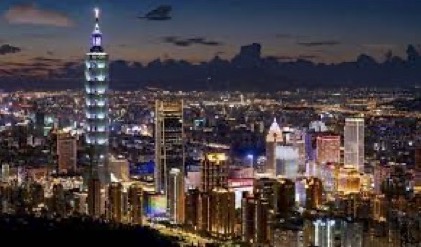Ukraine resistance to the Russian invasion has garnered widespread support in Taiwan, and has prompted serious consideration of Taiwan’s own vulnerability.
Taiwan, a successful democracy with a thriving economy, is claimed by China as part of the latter’s territory. China has repeatedly said that all options, including war, remain on the table to achieve ‘reunification’, despite the well-documented growth of sentiment in Taiwan against being drawn into China’s control. On Chinese insistence, other countries may not maintain relations with itself as well as Taiwan, and the latter is relatively isolated diplomatically – although substantial relations do exist in spite of the lack of formal recognition. They include those with such key regional powers as the United States and Japan.
For the Taiwanese, the parallels between Ukraine’s fate and its own are glaring. In common with much of the world, protests and demonstrations in solidarity with Ukraine have taken place.
Taiwan has instituted sanctions on Russia, although very little trade takes place between the two countries.
It has also sent humanitarian aid to Ukraine, established a fund to collect donations, while senior political leaders, including President Tsai Ing Wen, have pledged to donate personally to the cause.
President Tsai said: ‘I hope that our compatriots, as well as all our party partners in public office, can fully respond to this action and firmly express to the world that Taiwan stands with Ukraine, and Taiwan stands with democracy and freedom.’
Russia’s actions have provided an important opening to state its case to the world.
Professor Chong Ja Ian, of the National University of Singapore, has been quoted in the media as saying that Taiwan’s support for Ukraine serves ‘simply to remind the world that elsewhere, there is also a democracy being threatened by an autocracy, and that democracies should stand together.’
The war has also highlighted for Taiwan the risks it faces. Despite the threat from China, Taiwan has become used to living with it, as well as enjoying ambiguous security guarantees from the United State. Combined with continuous probing by the Chinese military in recent months, the war has underlined the reality of a possible military confrontation.
Alexander Huang, professor of strategy at Tamkang University, remarked: ‘Taiwan sees that western countries are sending food and weapons to Ukraine but not coming in physically, and that is something the Taiwanese did not imagine before. People thought as long as the US military is close, we are safe.’
Taiwan is undertaking an upgrade of its defence capabilities, through the procurement of new weapons and combat systems. The war has also raised the prospect of increasing conscription commitments, which have been falling over the years as Taiwan moved to an all-volunteer military.

